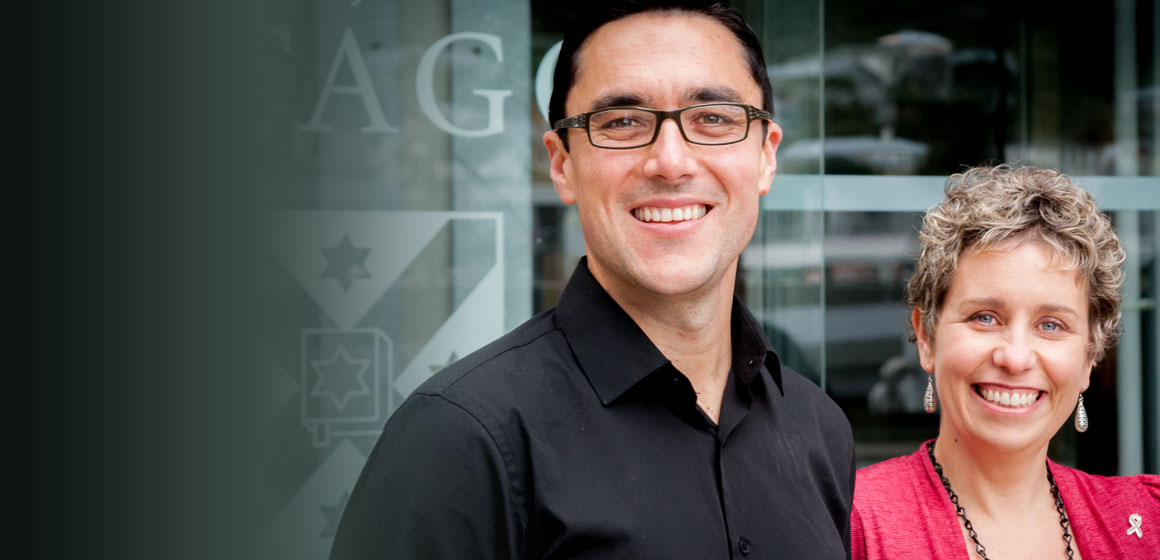 Monday 3 February 2014 2:36pm
Monday 3 February 2014 2:36pmContrary to international trends, in which testicular cancer is a disease of white men, New Zealand's rates are highest among Māori compared to any other ethnic group, including Pacific men for whom rates are the lowest. It's a unique and puzzling disparity that captured the imagination of Māori health researcher Dr Jason Gurney when he joined University of Otago, Wellington's Cancer Control and Screening Research Group (CCSRG) in 2011.
With the encouragement of the CCSRG director, Associate Professor Diana Sarfati, Gurney has picked up a line of enquiry that she began several years ago and is taking it in new and exciting directions. It was a sideways career move from biomechanics (diabetic foot research) when he joined the CCSRG to work with Sarfati on cancer research, but he quickly became hooked after reading a paper she had published in 2010 on ethnic disparities in testicular cancer.
“I was mesmerised by this incredible story – it's such an unusual and unexplainable disparity. Here was a fantastic opportunity to do some world-class research to find out more,” Gurney reflects.
“If we can explain why there is disparity between Māori and non-Māori, we might be able to explain what causes testicular cancer in the first place. And the stark difference between Māori and Pacific is potentially the lynchpin that could reveal what's going on.”
Beyond a couple of known risk factors, the causes of testicular cancer are poorly understood. Initially Gurney undertook a study funded by the Cancer Society in 2012, his first as a principal investigator, which identified that ethnic inequalities in rates of one of the well-known risk factors – undescended testes, also known as cryptorchidism – mirrored inequalities observed for testicular cancer itself.
This gave a clue, he says, to the aetiology of testicular cancer – the fact that men who have cryptorchidism are born with it suggests that at least part of the disparity in incidence is due to exposures that occur prenatally.
Building directly on this study, the next logical step was to begin to understand what was driving the significantly higher rates of both risk factor (cryptorchidism) and outcome (testicular cancer) among Māori men.
“The ethnic disparity here puts New Zealand in such a strong and unique position for research on the causes of testicular cancer,” he says.
“If we can explain why there is disparity between Māori and non-Māori, we might be able to explain what causes testicular cancer in the first place. And the stark difference between Māori and Pacific is potentially the lynchpin that could reveal what's going on.”
For Sarfati, there's an added satisfaction of working with someone who is not only passionate about the research, but “ticks her boxes” in terms of focusing on an important research path for the group. Both she and Gurney describe their relationship as “truly symbiotic”.
“I see my role as mentoring Jason to develop his own body of research to become a leading researcher in his own right with whom I can continue to work with collaboratively,” Sarfati says.
Gurney's research involves three key areas of work. The first will update what is known about the epidemiology of testicular cancer in New Zealand. The second body of work will involve a systematic literature review and meta-analysis on risk factors for testicular cancer. The third will be the development of the first New Zealand case-control study to look at the key exposures in the development of testicular cancer, and vigorously build on the line of enquiry around the disparity between Māori and non-Māori.
For Gurney – who won a 2014 Early Career Award for Distinction in Research – unlocking this puzzling dynamic will have multiple rewards.
“As a Māori researcher I'm committed to answering questions which are important to Māori, and that's a huge motivation for me. What's amazing about this area of research is that by answering those questions, we'll not only identify reasonable avenues of intervention to reduce this disparity, but also increase international understanding of the key exposures which lead to testicular cancer.”
2014 Early Career Awards for Distinction in Research
Funding
- Health Research Council
- Cancer Society of New Zealand
- University of Otago Early Career Award for Distinction in Research